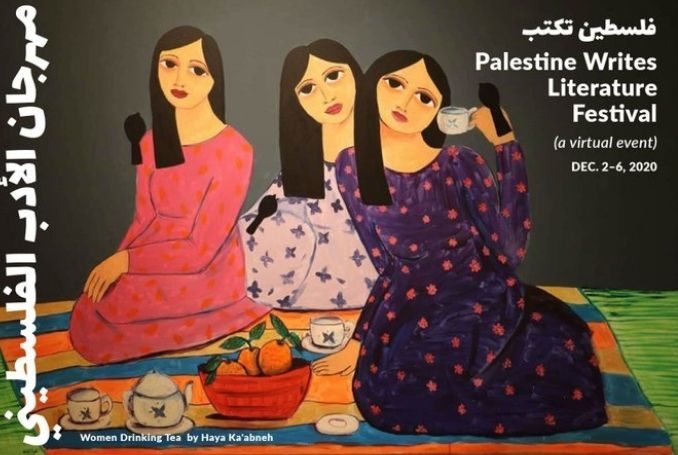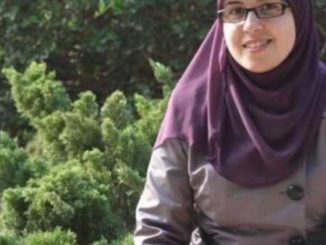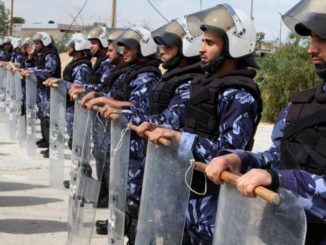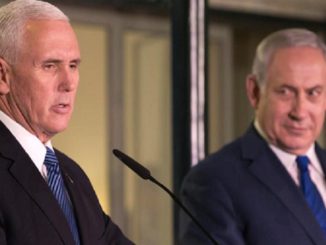
By Benay Blend
A Room of One’s Own is an extended essay by Virginia Woolf, first published in September 1929. Here she argues that a woman requires a room of her own and money if she is to write good books. More recently, her notion has been debunked by women of color, in particular the Muskogee poet Joy Harjo, who claims that for her, the “world begins at a kitchen table.” It is there that life abounds, thereby becoming a space where she best writes.
At first glance, Steve McQueen’s “Mangrove” and the Palestine Writes Festival appear to have little in common. A closer look, though, reveals that the Mangrove Café around which the film revolves and Palestine Writes share what Harjo centers in her poem: “This table has been a house in the rain,” she says, “an umbrella in the sun,” a space where the cooking of food, the writing of words, and conversation all come together to create a safe space in a stormy world.
Deeply committed to intersectionality, festival organizer Susan Abulhawa shares that, for her, “the @PalestineWrites festival is a dream come true. To see Palestinian writers in conversation with our Indigenous American, African, and African American peers before an audience of 3000 people spanning 75 countries makes my full warm heart soar!”
At a time when Zionists are attempting to silence the voices of Palestinian resistance, the festival should be considered remarkable by the mere fact that it happened. Moreover, like Joy Harjo at her table, it gave writers, poets, artists, chefs and activists from various communities, Palestinians and comrades both, a space in which they could speak without fear of retaliation.
As journalist Ahmed Mansour explains,
“Palestine Writes is what got me out of the state of constant depression. I saw how the festival, against all odds, celebrated our extensive culture from poetry, writing, cinema, signing and food. It made me realize that the road to liberation starts by reclaiming our narrative and culture. And then when we solidify that, the road to liberation becomes clearer and will be led by Palestinians.”
In Abulhawa’s spirit of connectedness, perhaps the most relevant presentation was “The Parallel Lives of Ghassan Kanafani and James Baldwin” with Huzama Habayeb, Rami Abushehab, Robin Kelley, and Bill Mullen. Kanafani, an intellectual who identified as Palestinian within a context of global revolution, fled Palestine in 1948, the same year that Baldwin moved to Paris to escape Jim Crow.
“There is work to do among Palestinians,” Abulhawa explains, reflecting on her own activist experience, “but there has never been a moment in our struggle when Palestinian activists did not stand with African American or African liberation struggles. There is a long and rich history of examples” she continued, “spanning political, guerrilla, cultural, material and rhetorical solidarity.”
As Alice Rothschild notes, both Kanafani and Baldwin “shar[ed] a similar discourse, developing strategies to confront and undermine racism, militants with a pen searching for salvation through resistance.” After Baldwin’s 1961 trip to Israel, where he witnessed the treatment of Palestinians, he drew parallels with the apartheid that he had known. At the same time, the Student Non-Violent Coordinating Committee (SNCC) published a manifesto stating that Zionism is settler colonialism.
Of particular significance, it was Kwame Ture who sounded the alarm against Zionism and imperialism. Born in Trinidad, Ture, as a child, later went on to work with the Black Panther Party, helping to steer the Radical Black movement towards solidarity with Palestinians.
Director Steven McQueen, also of Caribbean heritage, produced Mangrove as the first in a series of five films under the larger name Small Axe. “I needed to understand myself, where I came from,” he said, thereby describing a journey very much like that of participants in Palestine Writes.
The anthology’s title comes from an African proverb promoted in Jamaica by Bob Marley’s 1973 song (“If you are a big tree, we are the small ax”), an idea, too, that might describe Palestinian sumoud (steadfastness) and resilience.
Mangrove focuses on focuses on the Mangrove Nine case in 1970, when a group of Caribbean immigrants were tried on various charges stemming from a demonstration against police harassment of the Mangrove café, a restaurant that had become a meeting point for activists in West London.
While the film spotlights the trial, what really contributes to the activists’ success is the café, a meeting place where people gather, discuss politics, strategize their next movies, all while preserving their cultural integrity through the passing down of food.
By placing a “Black Ownership” sign in the window, the Mangrove proclaims itself a safe haven, where people who are welcome nowhere else can eat “spicey food,” recipes that are at once distinguished from what the majority eat but also serve as a tie back to a country where Blacks are the majority population.
Much like the festival, which provided a virtual meeting ground of sorts, the Mangrove affords a space where cultural pride in itself becomes a form of resistance. As A. O. Scott explains, Frank Crichlow (Shaun Parkes) is “not just a restaurateur but also, somewhat reluctantly, a civic leader, one whose authority is rooted in communal experience.”
Accordingly, when writing about the death of activist Darcus Howe, portrayed in the film as one of the Mangrove Nine, The Guardian described the Mangrove as “a small piece of decolonised territory in Notting Hill.”
As Odie Henderson notes in his review of the film, the clientele at Mangrove “form a group brought together by a common bond and a common enemy.” He continues that “the general rule amongst racists, even today, is that they not only do they not want you in their environment, they don’t want you to have a commensurate environment of your own either.”
“That it feels so much a product of present-day events,” Henderson concludes, “is a sad commentary on the state of affairs in the world today.”
As if to make this point, Ayat restaurant, a Palestinian café located in Brooklyn, New York, has recently been the target of bad reviews by Zionists who resent their presence. “The truth hurts I know,” says restauranter Abdul Elenani, along with chef Ayat Masoud, “and we will stand by PALESTINE no matter how many bad fake reviews you guys give us.”
“At the end of the tunnel there’s always a light. A Palestinian restaurant promoting peace and exposing the reality of the situation in Palestine, that’s MY (ABDUL ELENANI) goal, so go ahead and keep giving your fake reviews. Show your support here by 5 staring the hell out of this place and showing what we can do as ONE BODY-ONE COMMUNITY.”
Restaurants have often served as community centers, a room of one’s own where activism, conversation, and cultural preservation take place through the auspices of traditional food. Just as the festival served as a virtual space for cultural continuity, so these places serve the community.
At the start of the closing session of the festival, greetings came from another space, Israeli Damon prison, a place in which community exists despite the odds against it. Political prisoner Khalida Jarrar’s letter, was smuggled out then read by Yaffa and Suha, her two daughters.
“Although physically we are held captive behind fences and bars,” Jarrar writes, our souls remain free and are soaring in the skies of Palestine and the world.” Attesting to the community of imprisoned women that is tied, too, to world-wide liberation struggles, she adds that “we work to establish and consolidate human values and strive to obtain social and economic liberation that bind the free people of the world together.”
Like traditional cuisine that unites people within a culture, it is books, Jarrar says, that “constitute the foundation of life in prison.” The challenge she says, for her and fellow prisoners, becomes how to “transform our detention into a state of a ‘cultural revolution’ through reading, education and literary discussions.”
Finally, Jarrar concludes, “the pen is important, the paper is important and books are considered a treasure. All of which constitute tools used as part of our survival and struggle against the occupation, and also to develop ourselves.”
In all of these cases, there is a state of knowing one’s place, such as racists would like to happen, and then there is having one’s place, not necessarily a room of one’s own but rather a space like the Mangrove, replicated in various other places–in Brooklyn’s Ayat; in a prison cell that becomes a place of learning and revolution; and finally, in the virtual space of the festival, all places worth defending as loci of cultural resistance.
– Benay Blend earned her doctorate in American Studies from the University of New Mexico. Her scholarly works include Douglas Vakoch and Sam Mickey, Eds. (2017), “’Neither Homeland Nor Exile are Words’: ‘Situated Knowledge’ in the Works of Palestinian and Native American Writers”. She contributed this article to The Palestine Chronicle.

– Benay Blend earned her doctorate in American Studies from the University of New Mexico. Her scholarly works include Douglas Vakoch and Sam Mickey, Eds. (2017), “’Neither Homeland Nor Exile are Words’: ‘Situated Knowledge’ in the Works of Palestinian and Native American Writers”. She contributed this article to The Palestine Chronicle.







